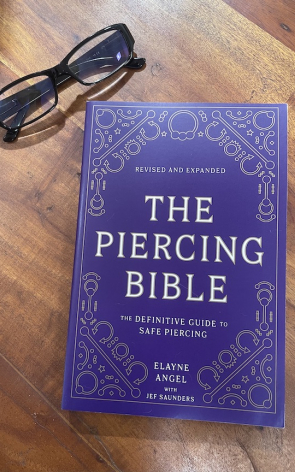A story in the Herald News from Tennessee reported that Bryan Community college lightened its prohibition against visible piercings in school. It is good to see regulations becoming more flexible and open toward piercing, but limitations will still be imposed: http://rheaheraldnews.com/story/15370
Last year students from the Student Government Association (SGA) worked to abolish the piercing rule which prohibited male students from having earlobe piercings and females from having nose piercings. This change stemmed from student complaints about the "outdated rule." When the rule was first established, piercings were viewed as signs of rebellion and generally weren't socially acceptable, but the cultural norms shifted, and the rule needed to as well, said senior student government member Joseph Maughon, who was influential in pushing for the change. Changing a rule isn't an easy process, and student leaders went to numerous meetings with various committees to see the amendment passed. The final vote came from the President's Council last spring. According to Maughon, the original wording of the piercing amendment said "no extreme in piercings" would be allowed. But Bryan administrators believed the wording to be too vague and made the rule more specific. So although piercings are now allowed, there are still limitations. Men are only allowed a single stud in each ear and women are allowed ear piercings and nose studs. Piercings of other body parts are not permitted at any time, male or female. Junior Katie Wilkens, who wears a diamond nose stud, said she doesn't understand why only nose piercings are allowed. "If you're going to legalize piercings, you should just go all the way," Wilkens said. Even with the regulations she is glad that the rule changed. Wilkens said her piercing is a "way to express individuality without doing anything drastic." Many students share Wilkens sentiment about the rule change. Sophomore Jonathan Houghton, from England, said that ear piercings in England are not only socially acceptablem, but popular. Houghton believed the previous rule to be "stupid." "I don't think there is anything wrong with them [piercings]," Houghton said. "In a work environment, it doesn't look professional, but in school it doesn't affect your studying at all." Students aren't the only ones on campus excited about the change. Resident Director Tim Shetter said he was in favor of changing the rule. Shetter said there was a small group on campus opposed to the change, but in general the entire campus, including faculty and staff, were excited about the alteration. In reference to the regulations on piercings, Shetter said that although the stigma about male ear piercings and female nose piercings has started to wear off, other body piercings still aren't as culturally accepted. Although many students would disagree with Shetter, right now the focus is on enjoying the new liberties. "It's a step in the right direction," Wilkens said.




